Here’s the age-old question that has puzzled many a budding guitarist: Is a Les Paul a good beginner guitar? Well, you’ve come to the right place to find out. We’re diving deep into the world of Les Pauls to give you the most comprehensive answer ever.
This article unravels the mystery, exploring everything from the iconic Les Paul’s history to its playability and genre adaptability, equipping you with all the information you need to make an informed choice as a beginner guitarist.
The Short Answer
So, is a Les Paul a good beginner guitar? The answer is a resounding yes, but with a few caveats. A Les Paul is an excellent choice if you’re looking for a versatile, high-quality instrument that can grow with you as you develop your skills. However, it’s essential to consider factors like weight and price, especially if you’re a younger player or on a tight budget.
Key Takeaways

Here are the essential points to remember!
- Historical Significance and Artist Popularity: The Les Paul is more than a guitar; it’s a piece of musical history. Since its creation in the 1950s by Les Paul, it has been favored by many legendary musicians for its unique tone and versatility, making it popular across various genres like rock, blues, and jazz.
- Playability Factors: Les Paul guitars are generally easy to play, with necks designed for comfortable chord formation and navigation of the fretboard. The string action is usually low, beneficial for beginners. However, their solid build makes them heavier, which can be a consideration for younger players or those with smaller frames.
- Genre Suitability: Les Paul guitars are versatile and used in many musical genres. They are particularly powerful in rock and metal due to their thick, rich tone and sustain. Additionally, they are suitable for blues and jazz, offering warm, rounded tones for different playing styles.
- Construction and Electronics: These guitars typically have a mahogany body with a maple top, contributing to their warmth and sustain. The set-in mahogany neck enhances the guitar’s resonant tone. Notably, Les Pauls feature humbucking pickups that provide a fuller sound than single-coil pickups, and their hardware, like the Tune-O-Matic bridge, contributes to their quality and sustain.
- Pros and Cons for Beginners: On the positive side, Les Paul guitars offer a versatile tone and high-quality build with excellent resale value. However, their weight and cost can be drawbacks. While there are budget-friendly models, they tend to be more expensive than other beginner-friendly guitars.
Final Verdict
Here are some things to keep in mind as you shop for a Les Paul guitar.
| Criteria | Les Paul as a Beginner Guitar |
|---|---|
| Versatility | Excellent |
| Tone | Iconic |
| Weight | Moderate to Heavy |
| Price | Varies (Budget to High-End) |
Keep On Reading (Below) To Learn More
Why The Les Paul?
History And Legacy
The Les Paul is not just a guitar; it’s a piece of musical history. Created by the legendary musician and inventor Les Paul, this guitar has been a staple in the music industry since the 1950s. It’s the go-to choice for many iconic musicians, from Jimmy Page to Slash.
Popularity Among Artists
Why do artists love it so much? Well, it’s not just about the looks, although let’s admit it, a Les Paul is a beauty to behold. It’s also about the unique tone and versatility it offers, making it a popular choice across various genres like rock, blues, and even jazz.
Are Les Paul Guitars Easy To Play?
Playability Factors
When it comes to playability, the Les Paul scores pretty high. The neck is usually designed with a comfortable profile, making it easier for beginners to form chords and navigate the fretboard. The action, or the height of the strings above the fretboard, is generally low, which is a plus for newbies.
Weight And Comfort
However, one thing to consider is the weight. Les Pauls are known for their solid build, which can make them a bit heavy. This is something to be aware of if you’re a young player or someone with a more petite frame.
What Makes A Good Beginner Guitar?
When you’re just starting out on your guitar journey, there are a few key factors that can make or break your experience. Let’s delve into what you should be looking for in a beginner guitar.
Price
First things first: the price. Guitars come in a wide range of prices, from budget-friendly to bank-breaking. As a beginner, you don’t need to splurge on a high-end model. However, you also don’t want to go too cheap and end up with a guitar that’s difficult to play and sounds like a tin can!
Playability
Next up is playability. This is a bit of a catch-all term that includes factors like the guitar’s action, neck profile, and fretboard radius. A low action and a comfortable neck profile can make it easier for you to press down on the strings and move your fingers across the fretboard. These are crucial aspects that can either encourage you or frustrate you as a beginner.
Tone
Last but not least, let’s talk about tone. The guitar’s tone is its voice, and you want that voice to be as clear and expressive as possible. Different woods and pickups contribute to a guitar’s tone, so it’s something to consider when making your choice. A good beginner guitar should offer a versatile tone that can adapt to different styles of music.
What Musical Genres Are Les Pauls Good For?
So you’re considering a Les Paul, but you’re wondering if it’s the right fit for your musical aspirations. Fear not, for the Les Paul is a versatile beast that can roar or purr depending on your needs!
Although these days, the Les Paul guitar is primarily used in Rock and Metal, it has been played in every musical genre. Les Paul invented the guitar and used it for all types of music, including Jazz.
Rock And Metal
Let’s start with the obvious: rock and metal. The Les Paul is a powerhouse in these genres, thanks to its thick, rich tone and sustain. Whether you’re churning out power chords or shredding solos, a Les Paul can deliver the sonic punch you need. Artists like Slash and Jimmy Page have made this guitar synonymous with rock!
Blues And Jazz
But what if you’re more into the soulful strains of blues or the complex harmonies of jazz? Good news: the Les Paul has got you covered there, too. Its warm, rounded tone is perfect for blues licks and jazz improvisations. Legendary artists like B.B. King have even had their own Les Paul models.
Les Paul Suitability By Genre
This table will give you more of an overview of the Les Paul guitar’s versatility.
| Genre | Suitability | Famous Artists Using A Les Paul |
|---|---|---|
| Rock | High | Slash, Jimmy Page |
| Metal | High | Zakk Wylde, Randy Rhoads |
| Blues | High | Gary Moore, Joe Bonamassa |
| Jazz | Medium | Wes Montgomery, George Benson |
| Country | Medium | Keith Urban, Brad Paisley |
| Pop | Medium to Low | Adam Levine, James Valentine |
Les Paul Features: A Closer Look
When you pick up a Les Paul, you’re not just holding a guitar; you’re holding a marvel of craftsmanship and engineering. But what exactly makes Les Paul so special? Let’s break it down.
Body And Neck
The body of a Les Paul is typically made of mahogany, often with a maple top. This combination gives the guitar its characteristic warmth and sustain. The neck is also usually mahogany, and it’s set into the body rather than bolted on, which contributes to the guitar’s resonant tone.
Pickups And Electronics
One of the standout features of a Les Paul is its humbucking pickups. Unlike single-coil pickups, which can produce a “hum,” humbuckers eliminate this noise, providing a cleaner, fuller sound. The standard Les Paul comes with two humbuckers, each with its own volume and tone control, allowing for a wide range of sonic possibilities.
Hardware
When it comes to hardware, a Les Paul doesn’t skimp. You’ll usually find a Tune-O-Matic bridge and a stop-bar tailpiece, which not only provide excellent tuning stability but also contribute to the guitar’s sustain. The tuners are generally high-quality as well, ensuring that once you’re in tune, you stay in tune.
Pros And Cons Of A Les Paul For Beginners
Every guitar has its strengths and weaknesses, and the Les Paul is no exception. Here’s what you need to know if you’re considering making a Les Paul your first guitar.
Pros
First, let’s talk about the good stuff. A Les Paul offers a versatile tone that can cover a wide range of musical styles. Thanks to its high-quality build, it also has excellent resale value. So, if you ever decide to upgrade or switch to a different guitar, you can rest assured that you’ll get a good chunk of your investment back.
Cons
Now, onto the not-so-great aspects. The most obvious drawback is the weight. Les Pauls are solidly built, which means they can be heavy. This could be an issue if you’re a younger player or have a smaller frame. Another point to consider is the price. While you can find budget-friendly Les Paul models, they can still be more expensive compared to other beginner-friendly options.
Pros And Cons Summary
Here it is, all tied up with a pretty little bow!


| Aspect | Pro or Con | Explanation |
|---|---|---|
| Versatility | Pro | Adaptable to various musical styles |
| Build Quality | Pro | Excellent craftsmanship and resale value |
| Weight | Con | Can be heavy, especially for younger or smaller players |
| Price | Con | Generally more expensive than other beginner options |
Gibson Les Paul Versus Epiphone Les Paul
When it comes to Les Paul guitars, two brands dominate the market: Gibson and Epiphone. While they may look similar, there are key differences that can influence your choice, especially as a beginner. Gibson owns Epiphone, which is their lower-cost guitar product line. That said, Epiphone guitars offer excellent quality for the money!
Price Comparison
First and foremost, let’s talk dollars and cents. Gibson Les Pauls are generally more expensive, often significantly so. They’re the original, the real deal, and their price reflects that. Epiphone Les Pauls, on the other hand, offer a more budget-friendly option without sacrificing too much in terms of quality.
Quality And Features
Now, let’s move on to quality and features. Gibson Les Pauls are made in the USA and are known for their meticulous craftsmanship and high-quality materials. Epiphone Les Pauls are usually made overseas and, while still well-crafted, may use less expensive materials and electronics. However, both brands offer a range of models with various features, so you can find something that suits your needs and budget.
Gibson Versus Epiphone Les Paul Features
Note that this information is generally accurate; there are always exceptions.
| Feature | Gibson Les Paul | Epiphone Les Paul |
|---|---|---|
| Price | $$$ | $$ |
| Build Quality | High | Good |
| Electronics | High | Good |
| Tone | Excellent | Very Good |
| Resale Value | High | Moderate |
| Country of Origin | USA | Overseas |
Which Les Paul Brand Is Right For You?
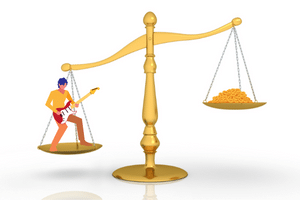
So you’ve decided that a Les Paul is the right guitar for you. Great choice! But wait, there’s more to consider. Les Paul is not just a single model; it’s a whole range of guitars with varying features and price points!
Gibson Models

When it comes to Gibson, you have options like the Les Paul Standard, Les Paul Custom, and Les Paul Studio. The Standard is the most popular model, offering top-of-the-line features and quality. The Custom is a more luxurious option with aesthetic upgrades, while the Studio is a more budget-friendly choice that still delivers on tone and playability.
The Les Paul Studio is generally more affordable due to its lack of things like body and fretboard binding, simpler finishes and woods, and non-“prestige” pickups.
Epiphone Models

On the Epiphone side, popular models include the Les Paul Standard PlusTop Pro, Les Paul Custom Pro, Studio, Special II, and Traditional Pro. These models offer a lot of the same features you’d find in their Gibson counterparts but at a more accessible price point.
The Standard PlusTop Pro, for instance, comes with ProBucker pickups and coil-tapping, giving you a wide range of tonal options. The Special II is an excellent choice for beginners, offering simplicity and ease of play without sacrificing quality.
Popular Les Paul Models By Brand
| Brand | Popular Models | Price Range | Features |
|---|---|---|---|
| Gibson | Standard, Custom, Studio, Junior, Classic | $$$ – $$$$ | High-quality materials, versatile tone |
| Epiphone | Standard PlusTop Pro, Custom Pro, Studio, Special II, Traditional Pro | $$ – $$$ | Good quality, budget-friendly |
The Weight Debate: Weight-Relieved vs. Chambered Les Pauls
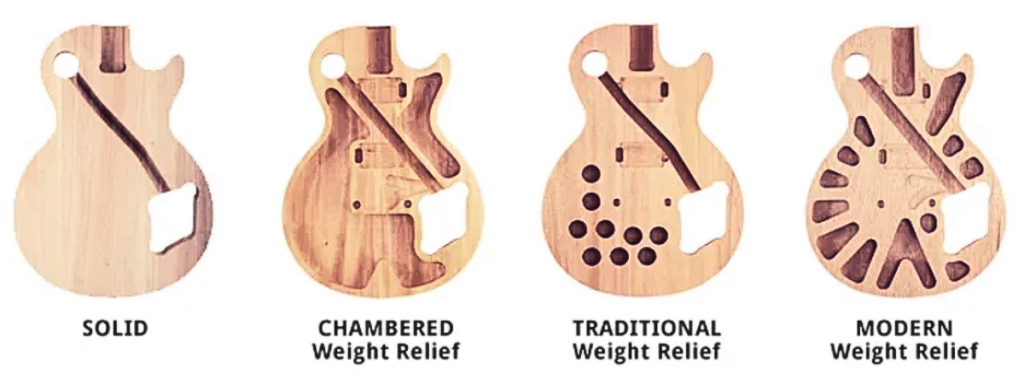
So, you love the Les Paul but dread the idea of lugging around a mini boulder? Let’s explore the two main options that aim to save your back without sacrificing that iconic Les Paul tone.
Weight-Relieved Les Pauls
These guitars have strategically removed sections of wood from the body, making them easier on the shoulders. The goal is to reduce weight while maintaining as much of the original tone as possible. These guitars are a good compromise for those who want a lighter Les Paul without straying too far from the classic sound.
The traditional method removes weight in a single area of the body by drilling holes clustered in the upper bout of the body near the bridge. A more modern approach evenly removes wood in as many areas as possible (see the above diagram).
Pros
First off, you get that iconic Les Paul look and feel without the chiropractor bills. We’re talking about a guitar that can weigh as little as 7 to 8 pounds. Plus, the weight-relief process is done so skillfully that it doesn’t compromise the guitar’s structural integrity.
Cons
But hold on, it’s not all sunshine and rainbows. Purists argue that weight-relieved Les Pauls lose some of that legendary sustain and warmth. While the difference is often subtle, it’s something to consider if you’re a tone aficionado.
Chambered Les Pauls
Chambered Les Pauls take it a step further. Instead of just removing sections of wood, these guitars have hollow “chambers” carved into the body. This not only reduces weight but also adds a unique tonal character to the guitar.
Pros
Even lighter than weight-relieved models, chambered Les Pauls offer a unique, resonant tone that’s great for specific genres like Jazz and Blues.
Cons
The downside? A more significant departure from the classic Les Paul tone and potentially a higher price tag due to the additional craftsmanship involved.
Weight-Relieved Vs. Chambered – A Quick Comparison
| Feature | Weight-Relieved Les Pauls | Chambered Les Pauls |
|---|---|---|
| Weight Range | 7-8 pounds | Even lighter |
| Tonal Characteristics | Close to original Les Paul | Unique, resonant tone |
| Structural Integrity | Maintained | Maintained |
| Suitable Genres | Versatile | Jazz, Blues |
| Price Range | Generally less expensive | Potentially pricier |
| Pros | Iconic look & feel, lighter weight | Even lighter, unique tone |
| Cons | Some tonal sacrifice | Departure from classic tone |
If you’re looking for a lighter Les Paul, your best bet is to play a weight-relieved model and compare it to a chambered one t see which one you like best!
Les Paul Alternatives To Consider

So you’re sold on the Les Paul style, but wondering if there are other brands that offer something similar? You’re in luck! Several brands have taken inspiration from the Les Paul design, offering their own takes on this classic. Here are three other brands to consider.
Schecter Solo-II
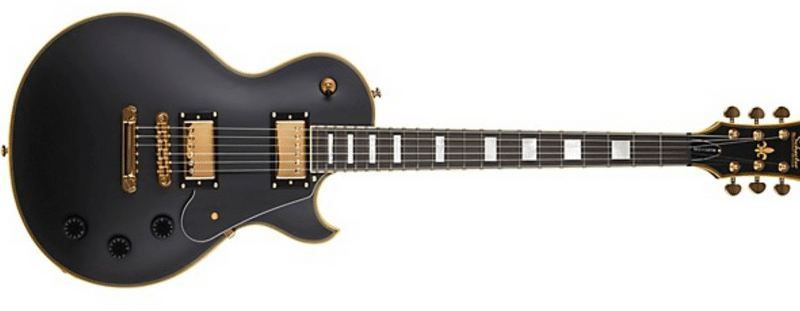
Schecter’s Solo-II series offers a Les Paul-style body with modern features like USA Pasadena and Pasadena Plus humbucker pickups and a thinner neck profile, making it a popular choice among metal players.
ESP Eclipse
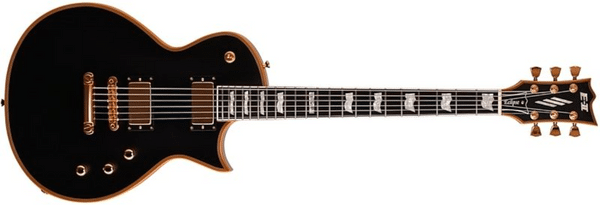
The ESP Eclipse series offers a Les Paul-esque body shape with modern appointments. Known for their high-quality craftsmanship, these guitars are often geared towards rock and metal players.
PRS Singlecut
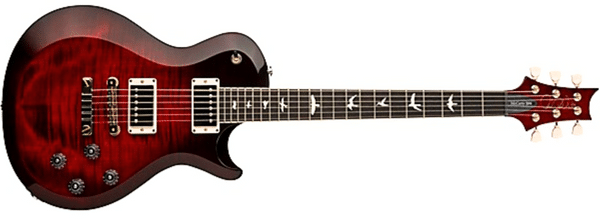
Paul Reed Smith (PRS) offers the Singlecut series, which features a similar single-cutaway body shape. PRS is known for its meticulous attention to detail and versatile tone. Consider a PRS Singlecut if you have the extra cash to spend.
Alternative Les Paul-Style Models
| Brand | Model | Price Range | Features |
|---|---|---|---|
| Schecter | Solo-II | $$ – $$$ | Modern features, metal-friendly |
| ESP | Eclipse | $$$ | Modern appointments, high-quality |
| PRS | Singlecut | $$$ – $$$$ | Attention to detail, versatile |
Non- Les Paul Alternatives To Consider

While the Les Paul is a fantastic choice for many players, it’s not the only game in town. Here are three other iconic guitar models that you might want to consider, each with its own set of advantages and characteristics, assuming you’re not dead-set on a Les Paul design.
Fender Stratocaster
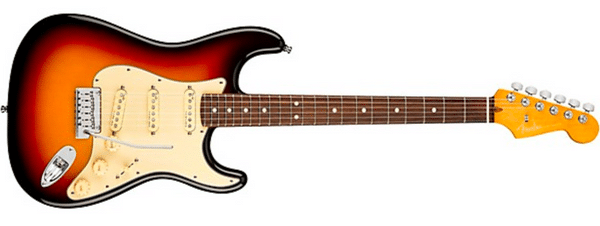
The Fender Stratocaster is known for its bright, cutting tone and its ergonomic contoured body. With three single-coil pickups and a tremolo bridge, the Strat offers a wide range of tonal possibilities and is a favorite among Blues and Rock players.
Fender Telecaster
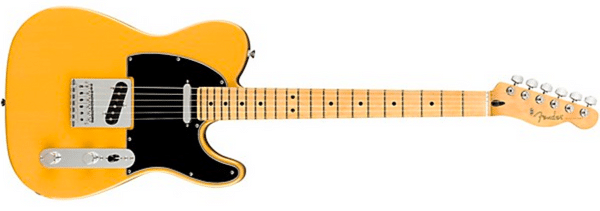
The Telecaster is another Fender classic known for its twangy, bright tone. It has a simpler design with two pickups and is often favored for Country, Blues, and Rock. Its single-cutaway body is thinner than a Les Paul, and the straightforward electronics make it an easy-to-use option for beginners.
Gibson SG

The Gibson SG offers a different flavor altogether. Known for its lightweight, double-cutaway body, the SG provides easy access to higher frets. It’s equipped with P90 pickups or humbuckers like a Les Paul but has a distinct, biting tone that’s well-suited for Rock and Metal.
Non-Les Paul Alternatives
| Model | Brand | Price Range | Features |
|---|---|---|---|
| Stratocaster | Fender | $$ – $$$$ | Bright tone, ergonomic design |
| Telecaster | Fender | $$ – $$$$ | Twangy tone, simple design |
| SG | Gibson | $$$ – $$$$ | Lightweight, easy upper-fret access |
Before you definitely decide to go Les Paul style, you should at least play a Strat, Tele, and an SG!
Expert Opinions On Les Paul Guitars
When it comes to making an informed decision, sometimes it helps to get a second (or third, or fourth) opinion. Here are some insights from guitar experts to give you a well-rounded view on whether a Les Paul is a good beginner guitar.
Music Educators
Many music educators recommend the Les Paul for its versatile tone and high-quality build. They often point out that the guitar’s humbucking pickups offer a wide range of sonic possibilities, making it a great choice for students who want to explore different genres.
Professional Guitarists
Pro guitarists often praise the Les Paul for its iconic tone and sustain. While some mention the weight as a potential drawback, they generally agree that the guitar’s pros outweigh its cons, especially for those committed to mastering the instrument.
Guitar Technicians
Techs who work on guitars for a living also have good things to say about the Les Paul. They often highlight the guitar’s solid construction and quality materials, noting that these features make it a durable option that can withstand the rigors of frequent play.
My Personal Choice In A Les Paul For Beginners
If I had to pick just one Les Paul-style guitar in this article as a beginning player on a budget, I would Choose the Schecter Solo-II!
I had the chance to play one at a local Guitar Center through a variety of classic and high-gain amplifiers. The one I played came loaded with Pasadena Plus humbucker pickups, which delivered a rich, versatile tone that can handle anything from Blues to Metal.
This guitar is a rockstar in its own right; offering a thinner neck profile that ensures comfortable playability, making those first chords and scales a breeze to learn.
I love its stunning aesthetics! This is a guitar you’ll be proud to show off.
I highly recommend the Schecter Solo-II If you’re a beginner craving that Les Paul vibe but seeking something a bit more modern and budget-friendly.
If you’re interested in grabbing a Solo-II for yourself, click the buttons below to check availability, user reviews, and current pricing. They tend to go out of stock quickly, so don’t wait!

So why wait? Make the Schecter Solo-II your first guitar and start your musical journey on a high note!
The “Weighty” Issue Of Les Paul Guitars!

Ah, the Les Paul. It’s like the sumo wrestler of the guitar world—big, bold, and not exactly light on its feet. We’re talking about a guitar that can tip the scales at around 9 to 12 pounds. That’s a whole lot of mahogany and maple, my friends!
Now, why is this a big deal? Well, on the plus side, that weight contributes to the Les Paul’s legendary sustain. You hit a note, and it’s like the Energizer Bunny – it just keeps on “going and going.” That’s because the dense wood and set-neck construction create a natural resonance that lighter guitars can’t match.
But here’s the flip side: carrying a Les Paul for an extended gig or jam session can feel like you’ve got a baby elephant strapped to your shoulder. Trust me, your back will have a few choice words for you the next morning. And if you’re someone with back issues, this is definitely something to consider!
So there you have it. The weight of a Les Paul is both its superpower and its kryptonite. Choose wisely, and maybe invest in a comfy strap while you’re at it.
Frequently Asked Questions

Here are some of the questions I get asked about Les Paul guitars.
If your question does not appear here, please put it in the comments, and I will get right back to you with an answer.
Are There Any Budget-Friendly Les Pauls For Kids?
Yes, Epiphone offers smaller, budget-friendly models suitable for younger players.
Can I Use A Les Paul For Fingerstyle Playing?
Yes, the Les Paul’s versatile tone and comfortable action make it suitable for fingerstyle.
Can I Use A Capo On A Les Paul?
Absolutely, a capo can be used on a Les Paul just like any other guitar.
What’s The Average Weight Of A Les Paul?
The average weight is around 9-12 pounds, depending on the model.
What’s The Scale Length Of A Les Paul?
The typical scale length is about 24.75 inches.
Can I Use A Les Paul For Recording?
Yes, Les Pauls are often used in studio recordings due to their rich, versatile tone.
Can I Install A Whammy Bar On A Les Paul?
It’s possible, but it requires significant modifications. Consult a professional for this.
Are Les Pauls Hard To Play?
Not at all! Les Pauls are generally considered easy to play due to their comfortable neck profile and well-balanced action. The shorter scale length also makes it easier to navigate the fretboard, making it a solid choice for players of all skill levels.
Final Thoughts

So, is a Les Paul a good beginner guitar? The short answer is a resounding yes. This iconic guitar offers a versatile tone that has been favored by legends in nearly every genre of music, from Rock to Jazz and beyond.
Whether you opt for a Gibson or an Epiphone, you’re investing in a quality instrument that can grow with you as you hone your skills. And if you’re looking for something a bit more budget-friendly, the Schecter Solo-II is an excellent choice, offering Les Paul vibes with modern features.
Experts agree that the Les Paul is a solid choice for beginners, praising its build quality, versatility, and iconic tone.
But the Les Paul isn’t your only option. Other guitars like the Stratocaster, Telecaster, and Gibson SG offer their own unique features and tones. The best guitar for you is the one that meets your individual needs and musical aspirations. So, try out a few different models and see which ones resonate with you.
To make the most informed decision, consider your musical goals, budget, and the genres you’re interested in.

Here’s a great video where Mark Agnesi Talks About The Les Paul Standard 60’s Model. You may know Mark from Norman’s Rare Guitars YouTube videos.
Unfortunately, Gibson went through a period of making some Les Pauls with substandard parts, but now they’re back to putting in only the good stuff. Check what’s happening with the new ’60s LP Standards!
What To Read Next ➡ Can A Les Paul Sound Like A Strat? – Best Tips And Tricks!
Related Article ➡ Can A Strat Sound Like A Les Paul? – Trade Secrets Revealed!
Tell Me What You Think

Please leave a comment below if you enjoyed this article, have any questions about Les Pauls, or want to give your point of view. I will be happy to help you.
- How much of a factor is the weight of a Les Paul in your decision to buy a guitar?
- After reading this article, did it help you choose a Les Paul guitar?
- Are you interested in “Limited Edition” or “Signature Series” Les Paul guitars? Which ones?
- What else is on your mind?


